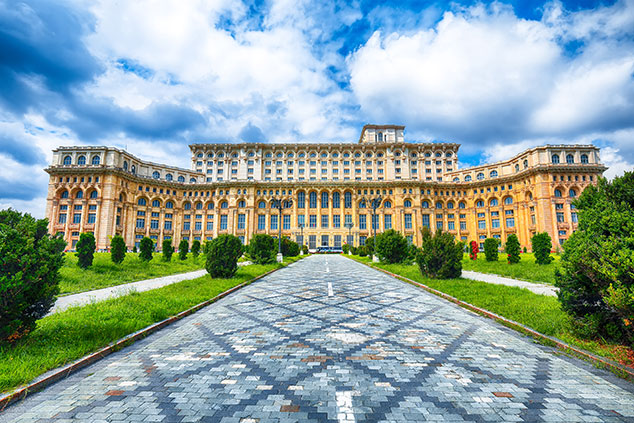
It has proven a turbulent year for many emerging economies. Continuing US-China trade tension was a formidable headwind for the export-dependent economies of emerging Asia, with South Korean exports down 14.3% in November on a year before. Civil unrest saw Hong Kong slip into recession and rocked many nations in Latin America, with the MSCI Chile index down about 16%. Emerging-market central banks responded by joining the global trend towards monetary easing. The Bank of Russia has delivered five consecutive interest-rate cuts through December, says Simon Kennedy on Bloomberg. In Turkey and Ukraine, central banks slashed rates by 2% earlier this month.
The top performers
Emerging Europe turned in some “stand-out performances” in 2019, notes Ben Hobson on Stockopedia. Greece’s market “collapsed” in the years after its financial crisis, yet a better economy and more political stability have given it a “big lift” this year, with the main index rising by 49%.
Romania was another unloved country that came back into fashion, note Veronika Glyas and Irina Vilcu on Bloomberg. With a “new, market-friendly government at the helm”, the country’s stockmarket turned from “pariah to darling”, returning more than 30% this year. Its stocks still look cheap. Russian stocks also enjoyed a banner year, with the country’s stockmarket recording a 39% gain. The rebound in Russia is “more than a one-year phenomenon”, says Sumit Roy on etf.com.
The iShares MSCI Russia ETF has now risen steadily since 2016, when the country’s stocks “hit rock bottom on the back of sanctions by the West and an oil price crash”. Russia is still among the world’s cheapest markets, but that is because it brings numerous geopolitical and oil-price risks. China’s CSI 300 delivered an impressive 35% return, a welcome comeback after investors endured a 27% crash in 2018. India’s Nifty 50 Index advanced 12%, while Indonesia’s IDX composite stagnated, recording a 1.1% gain for the year. Finally, Brazilian stocks enjoyed a healthy 25% gain in a year in which the government finally passed landmark pension reforms.
The year ahead
Emerging economies face plenty of potential pitfalls in 2020, says Paul Wallace on Bloomberg. Slowing growth in China and India threaten to hurt the asset class as a whole. There are also plenty of “country-specific issues” as Argentina flirts with default, South Africa grapples with moribund state power firm Eskom and Chinese bond defaults rise. On a more positive note, Jerome Powell’s recent suggestion that America’s Federal Reserve may not raise interest rates until 2021 is a boon. Lower for longer rates will keep the US dollar weaker, which means cheaper borrowing costs for businesses in the world’s emerging markets.
Expect central banks to come to the rescue in 2020, says Capital Economics. Monetary easing will continue across major emerging economies. With the Asian electronics cycle and key commodity prices on the up, export growth is due for a rebound. Yet those hoping for a return to the early 2000s’ period of rapid “catch-up” growth may be disappointed over the next decade. “The process of reform and market liberalisation has stalled in many large emerging markets.” Investors will have to be picky and choose “well-placed and well-managed economies” if they want to do well in the 2020s. MoneyWeek favourites include India and Vietnam.